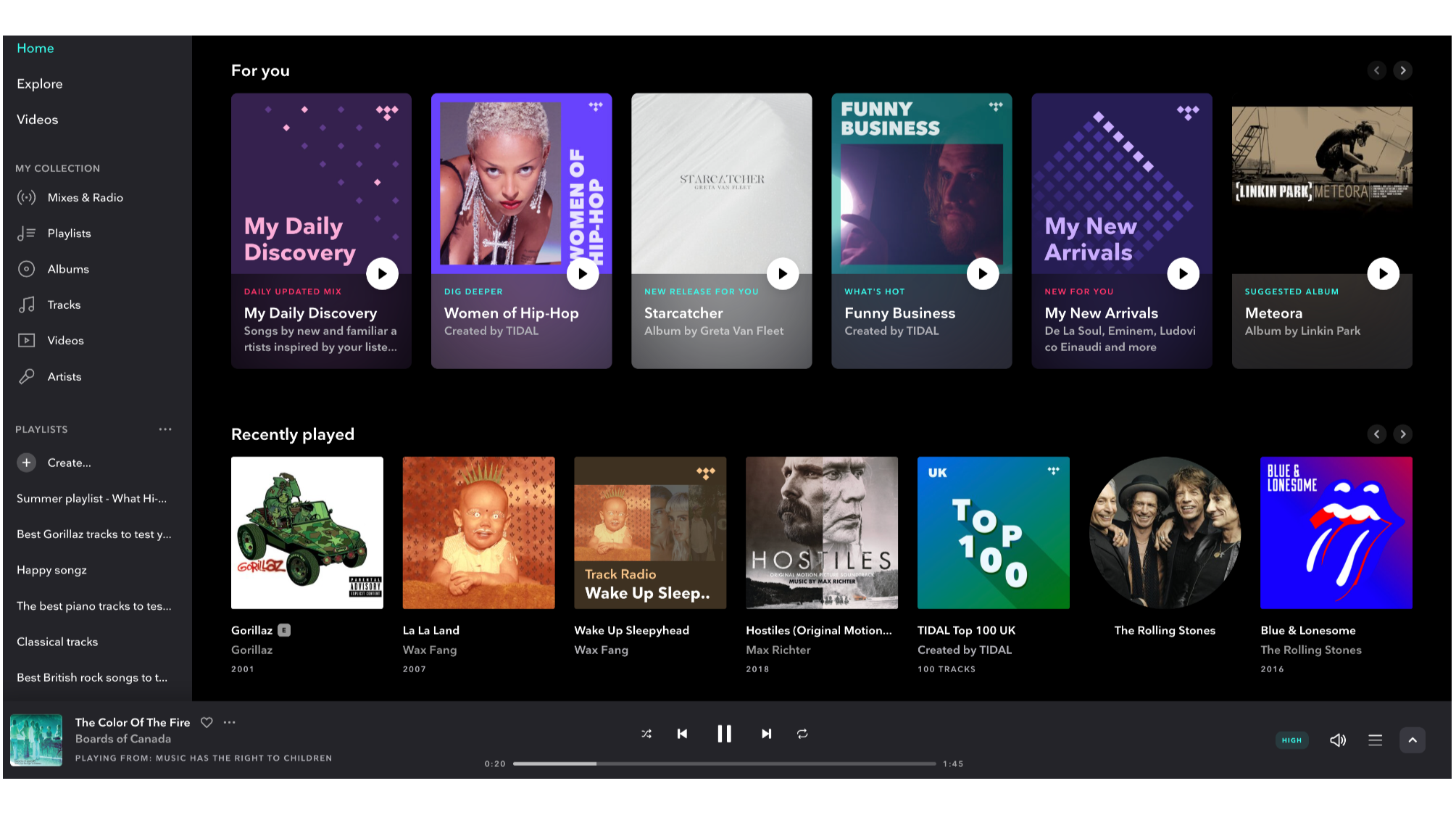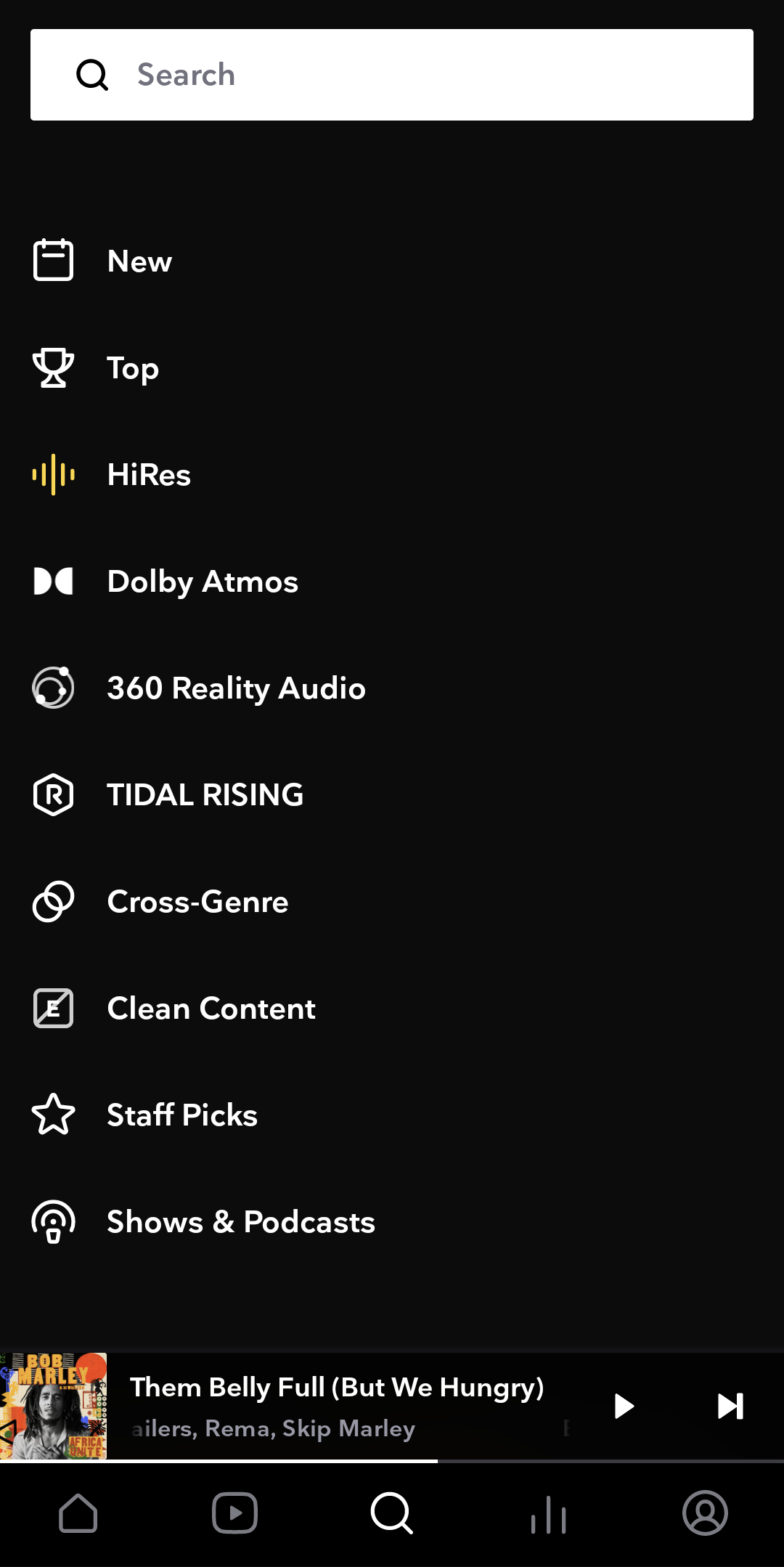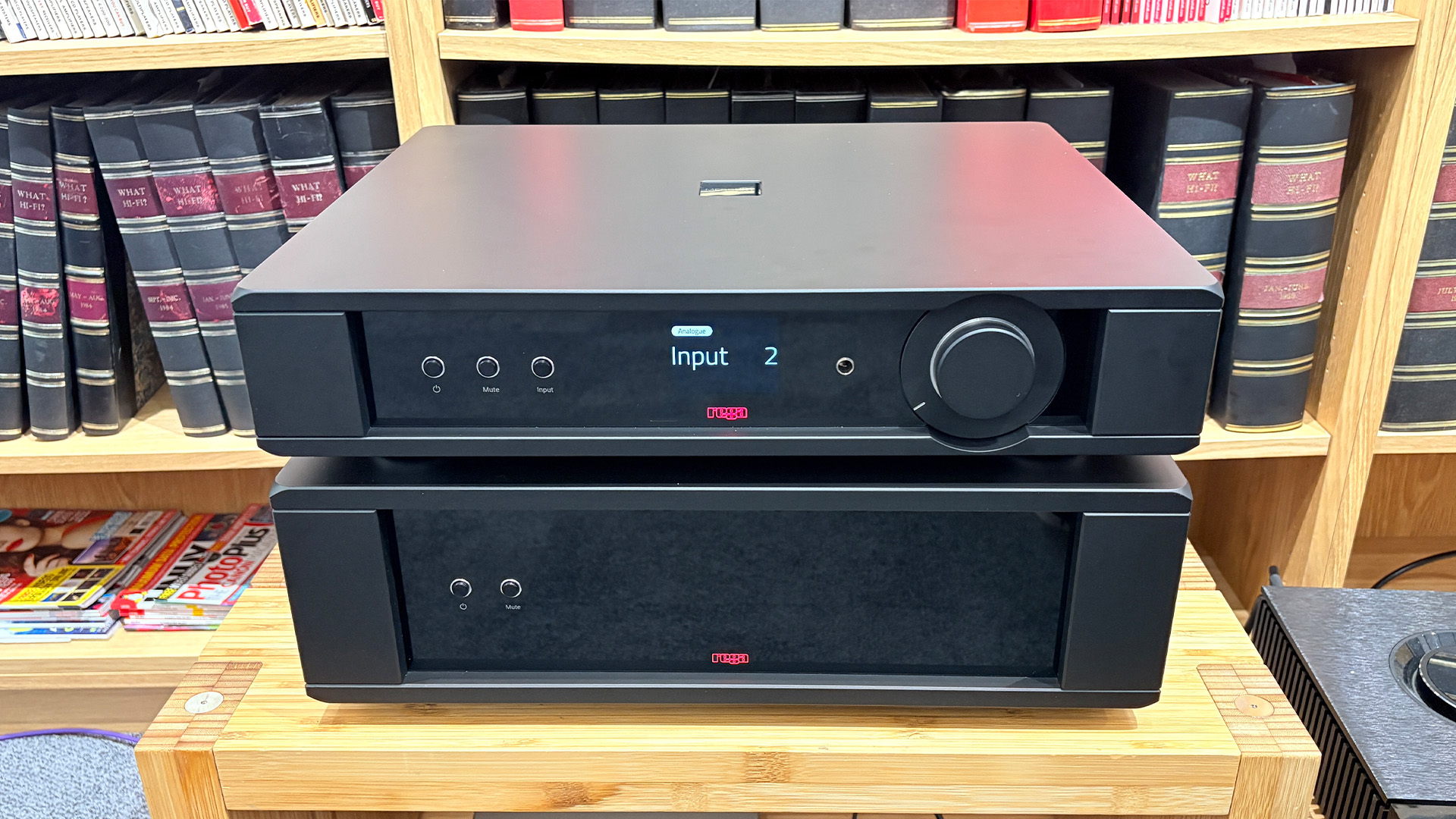Right on cue, Tidal begins rolling out hi-res FLAC streaming
Over six million songs are now available in the format

The latest hi-fi, home cinema and tech news, reviews, buying advice and deals, direct to your inbox.
You are now subscribed
Your newsletter sign-up was successful
Tidal now offers over six million songs in hi-res FLAC format courtesy of its latest app update.
As we reported back in April, Tidal CEO Jesse Dorogusker announced via an AMA session over on Reddit that Tidal “will be introducing hi-res FLAC for our HiFi Plus subscribers soon”. A following statement suggested these could reach HiFi Plus subscribers in August, and right on cue here they are. (If only Spotify could be so punctual with its hi-res promises…)
The hi-res FLAC streams sit alongside the service’s current MQA-powered hi-res streams, which have required HiFi Plus subscribers to have a device or software capable of decoding the MQA technology, such as the mobile apps or an MQA-compatible music streamer. By adding hi-res FLACs to its library, the service’s high-resolution streaming offering is more accessible than ever before.
The highly anticipated upgrade has taken effect this past week and applies to users across all platforms. As a result of this latest change, Tidal has renamed its audio quality levels to make it easier for users to choose based on their hardware specs and data strength.

New audio quality settings:
• Max – High fidelity lossless audio up to 24-bit, 192 kHz with HiRes FLAC (Free Lossless Audio Codec) and Master Quality Authenticated audio (MQA).
• High – Lossless audio with FLAC (16-bit, 44.1 kHz)
• Low (up to 320 kbps) – Listen to the music you love using lower data usage with compressed AAC files.
The latest hi-fi, home cinema and tech news, reviews, buying advice and deals, direct to your inbox.
This followed the news that MQA Ltd had entered administration, which created uncertainty around the question of whether the MQA (Master Quality Authenticated) format would continue to be supported on Tidal.
Although it is still unclear what the future looks like for MQA Ltd, Tidal confirmed that its “existing MQA catalogue will continue to be available on the platform” when we reached out to the company for comment earlier this year.
MORE:
Read our Tidal review
Tidal CEO confirms hi-res FLAC roll-out – and drops hint on MQA support
Tidal is introducing hi-res lossless FLAC but says the MQA catalogue will remain
Ainsley Walker is a staff writer at What Hi-Fi?. He studied music journalism at university before working in a variety of roles including as a freelance journalist and teacher. Growing up in a family of hi-fi enthusiasts naturally influenced his interest in the topic. Outside of work, Ainsley can be found producing music, tinkering with retro tech, or cheering on Luton Town.
